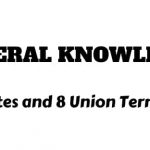TSPSC Group 2 Exam Pattern | TSPSC Recommended Group 2 Books
Tspsc Group 2 Exam Pattern and Books
Tspsc Group 2 exam pattern, Exam consist of two parts, Part A (Written test) and Part B (Interview)
Written Test is an objective type question with 4 papers of 600 marks.
Paper I: General Studies and General Ability
Paper-II: History, Polity, and Society
Paper III: Economy and Development
Paper IV: Telangana Movement and State Formation
Merits candidates in Written Test will be called for Interview(Part-B) for 75 marks with 1:2 or 1:3 ratio for job positions which conclude total 675 marks(600 marks – Written test and 75 marks – Interview)
PART-A WRITTEN EXAMINATION (Objective Type)
| Subject | Questions | Duration | Marks |
| Paper I GENERAL STUDIES AND GENERAL ABILITIES | 150 | 2:30 hrs | 150 |
| Paper-II HISTORY, POLITY, AND SOCIETY | 150(3×50) | 2:30 hrs | 150 |
| Paper III ECONOMY AND DEVELOPMENT
| 150(3×50) | 2:30 hrs | 150 |
| Paper IV TELANGANA MOVEMENT AND STATE FORMATION | 150(3×50) | 2:30 hrs | 150 |
| Total | 600 | ||
| PART – B INTERVIEW | 75 | ||
| Grand Total | 675 |
Tspsc Group II Detail Syllabus
As we discussed above, the Tspsc Group 2 written Exam consists of four papers with an Objective type exam.
TSPSC Group 2 Exam Pattern and Syllabus General Studies and General Ability
Paper I consists of 150 Question, each 1 mark, total 150 marks Paper
Topics: General Studies and General Ability are given as
a) Current Affairs – Regional, National & International.
b) International Relations and Events.
c) General Science; India’s Achievements in Science and Technology
d) Environmental Issues; Disaster Management – Prevention and Mitigation Strategies.
e) World Geography, Indian Geography, and Geography of Telangana State.
f) History and Cultural Heritage of India.
h) Society, Culture, Heritage, Arts and Literature of Telangana.
i) Policies of Telangana State.
j) Social Exclusion, Rights Issues, and Inclusive Policies.
k) Logical Reasoning; Analytical Ability and Data Interpretation.
l) Basic English. (10th Class Standard)
Group 2 Paper I: TSPSC Group 2 Recommend Best Books
1) Manorama Yearbook. (Current Affairs)
2) NCERT Books Set (Set of 27 books or 40 books)
3) Environmental Studies: From Crisis to Cure – Rajagopalan. (Environment)
4) Geography of India – Majid Husain (Geography)
5) World Geography Paperback –Majid Husain
6) Telangana Regional Geography by Telugu Akademi
7) Telangana History-Culture [ English Medium ] by Telugu Akademi
8) History Of Modern India – Bipan Chandra (History)
10) India’s Struggle For Independence – Bipan Chandra (History)
11) India’s Ancient Past – R.S. Sharma. (History)
12) History Of Medieval India – Satish Chandra. (History)
13) Social Problems In India – Ram Ahuja (Indian Society)
14) Analytical Reasoning – M. K. Pandey
15) Verbal & Non-Verbal Reasoning – R. S.Aggarwal
Free PDF Downloads
For NCERT free PDF download – Click Here
For Telugu Academic Books for Class I to Class X free download – Click Here
Daily News Paper download – Click Here
Group II Paper II Syllabus History, Polity and Society
Paper-II consists of 150 Questions, 50 Questions from each topic(History, Polity, and Society). Each question carries 1 mark makes 150 mark Question Paper.
Topics:
a) Socio-Cultural History of India and Telangana
b) Overview of the Indian Constitution and Politics
c) Social Structure, Issues, and Public Policies
Best Recommended Book: Telangana History Ancient to Modern by Fdaytalk
Complete Syllabus:
History of India and Telangana
1) Salient features of Indus Valley Civilization: Society and Culture. -Early and Later Vedic Civilizations; Religious Movements in Sixth Century B.C. –Jainism and Buddhism. Socio, Cultural Contribution of Mauryas, Guptas, Pallavas, Chalukyas, Cholas Art and Architecture – Harsha and the Rajput Age.
2) The Advent of Islam and the Establishment of Delhi Sultanate-Socio, Cultural Conditions under the Sultanate –Sufi and Bhakti Movements. The Mughals: Social and Cultural Conditions; Language, Literature, Art, and Architecture. Rise of Marathas and their contribution to Culture; Socio-Cultural conditions in the Deccan under the Bahamas and Vijayanagara – Literature, Art and Architecture.
3) The advent of Europeans: Rise and Expansion of British Rule: Socio-Cultural Policies – Cornwallis, Wellesley, William Bentinck, Dalhousie, and others. The Rise of Socio-Religious Reform Movements in the Nineteenth Century. Social Protest Movements in India –Jotiba and Savithribai Phule, Ayyankali, Narayana Guru, Periyar Ramaswamy Naicker, Gandhi, Ambedkar, etc.
4) Socio-Cultural conditions in Ancient Telangana- Satavahanas, Ikshvakus, Vishnukundins, Mudigonda and Vemulawada Chalukyas. Religion, Language, Literature, Art and Architecture; Medieval Telangana – Contribution of Kakatiyas, Rachakonda and Devarakonda Velamas, Qutub Shahis; Socio-Cultural developments: Emergence of Composite Culture. Fairs, Festivals, Moharram, Ursu, Jataras, etc.
5) Foundation of Asaf Jahi Dynasty- from Nizam –ul- Mulk to Mir Osman Ali Khan – Salar Jung Reforms Social system and Social conditions-Jagirdars, Zamindars, Deshmukh, and Doras- Vetti and Bhagela system and position of Women. Rise of Socio-Cultural Movements in Telangana: Arya Samaj, Andhra Maha Sabha, Andhra Mahila Sabha, Adi-Hindu Movements, Literary and Library Movements. Tribal and Peasant Revolts: Ramji Gond, Kumaran Bheemu, and Telangana Peasant Armed Struggle – Police Action and the End of Nizam Rule.
Indian Constitution and Politics
1. Evolution of Indian Constitution – Nature and salient features – Preamble
2.Fundamental Rights – Directive Principles of State Policy – Fundamental Duties.
3 Distinctive Features of Indian Federalism – Distribution of Legislative and Administrative powers between Union and States.
4. Union and State Governments – President – Prime Minister and Council of Ministers; Governor, Chief Minister and Council of Ministers – Powers and Functions.
5. Rural and Urban Governance with special reference to the 73rd and 74th Amendments.
6. Electoral System: Free and Fair Elections, Malpractices; Election Commission; Electoral Reforms and Political Parties.
7. Judicial System in India – Judicial Activism.
8. a) Special Provisions for Scheduled Castes, Scheduled Tribes, Backward Classes, Women and Minorities
b) Welfare Mechanism for Enforcement – National Commission for Scheduled Castes, National Commission for Scheduled Tribes and National Commission for Backward Classes.
9. Indian Constitution: New Challenges.
Social Structure, Issues, and Public Policies
1) Indian Social Structure: Salient Features of Indian society: Caste, Family, Marriage, Kinship, Religion, Tribe, Women, Middle class – Socio-cultural Features of Telangana Society.
2) Social Issues: Inequality and Exclusion: Casteism, Communalism, Regionalism, Violence against Women, Child Labour, Human trafficking, Disability, and Aged.
3) Social Movements: Peasant’s Movements, Tribal movements, Backward Class Movements, Dalit Movements, Environmental Movements, Women’s Movements, Regional Autonomy Movements, Human Rights Movements.
4) Telangana Specific Social Issues: Vetti, Jogini, Devadasi System, Child labor, Girl child, Fluorosis, Migration, Farmer’s and Weaver’s Distress.
5) Social Policies and Welfare Programmes: Affirmative Policies for SCs, STs, OBC, Women, Minorities, Labour, Disabled and Children; Welfare Programmes: Employment, Poverty Alleviation Programmes; Rural and Urban, Women and Child Welfare, Tribal Welfare.
Group 2 Paper-II Recommended Best Group 2 Books
1) History Of Modern India – Bipan Chandra (History)
2) India’s Struggle For Independence – Bipan Chandra (History)
3) India’s Ancient Past – R.S. Sharma. (History)
4) History Of Medieval India – Satish Chandra. (History)
5) Telangana Regional Geography by Telugu Akademi
6) Telangana History-Culture [ English Medium ] by Telugu Akademi
7) Indian Polity – M. Laxmikanth. (Polity)
8) Social structure issues and pubic policies – Deepika Reddy
Group II Paper III Syllabus Economy and Development
Paper III consists of 150 Questions, 50 Questions from each topic. Each question carries 1 mark makes 150 mark Question Paper
Topics
a) Indian Economy: Issues and challenges
b) Economy and Development of Telangana
c) Issues of Development and Change
Complete Syllabus:
Indian Economy: Issues and Challenges.
1. Growth and Development: Concepts of Growth and Development –Relationship between Growth and Development
2. Measures of Economic Growth: National Income- Definition, Concepts and Methods of measuring National Income; Nominal and Real Income.
3. Poverty and Unemployment: Concepts of Poverty – Income based Poverty and Non-Income based poverty, Measurement of Poverty; Unemployment- Definition, Types of Unemployment
4. Planning in Indian Economy: Objectives, Priorities, Strategies, and Achievements of Five-year Plans – 12th FYP; Inclusive Growth – NITI Aayog
Economy and Development of Telangana.
1. Telangana Economy in undivided Andhra.Pradesh (1956-2014)- Deprivations (Water Bachavat Committee), Finances (Lalit, Bhargava, Wanchu Committees) and Employment( Jai Bharat Committee, Girgilan committee) and Under Development.
2. Land Reforms in Telangana: Abolition of Intermediaries: Zamindari, Jagirdari, and Inamdari; Tenancy Reforms; Land ceiling; Land alienation in Scheduled Areas
3. Agriculture and Allied Sectors: Share of Agriculture and Allied sectors in GSDP; Distribution of land holdings; Dependence on Agriculture; Irrigation- Sources of Irrigation; Problems of Dryland Agriculture; Agricultural credit.
4. Industry and Service Sectors: Industrial Development; Structure and Growth of Industry sector micro, Small and Medium Enterprises (MSME) sector; Industrial Infrastructure; Industrial Policy of Telangana; Structure and Growth of Service sector.
Issues of Development and Change
1. Development Dynamics: Regional Inequalities in India – Social Inequalities – Caste, Ethnicity (tribe), Gender and Religion; Migration; Urbanization.
2. Development and Displacement: Land Acquisition Policy; Resettlement and Rehabilitation.
3. Economic Reforms: Growth, Poverty, and Inequalities – Social Development (education and health); Social Transformation; Social Security.
4. Sustainable Development: Concept and Measurement; Sustainable Development Goals.
Paper III Tspsc Group 2 Recommended Best Books
1) Indian Economy – Ramesh Singh. (Economy)
3) Telangana Economy by Telugu Akademi
Free Pdf Download
a) Telangana Socio-Economic Outlook 2018 – Click Here
b) Telangana Statistical Year Book 2017 – Click Here
c) Telangana Agricultural at glance 2015-16 – Click Here
d) Telangana at Glance 2017 – Click Here
e) GSDP Estimates – 2017- 2018 – Click Here
f) Human Development Report – Click Here
Group 2 Paper IV Syllabus Telangana Movement and State Formation
Paper IV consists of 150 Questions, 50 Questions from each topic. Each question carries 1 mark makes 150 mark Question Paper
Topics:
a) The idea of Telangana (1948-1970)
b) Mobilization phase (1971 -1990)
c) Towards Formation of Telangana State (1991-2014)
Paper IV Tspsc Group 2 Recommended Best Books
1) Complete Telangana History Ancient to Modern
2) Telangana Movement – State Formation by Telugu Akademi
3) History of Telangana by Fdaytalk
4) History of Telangana movements- V Prakash
Learn More
Link 1 – Complete Gk Gs for Competitive Exams
Link 2 – Indian Constitution Notes for competitive Exams
Link 3 – Complete Telangana History Notes
Link 4 – Download Quantitative and Aptitude Competitive Exams
Link 7 – Download free eBooks
For Group 1 Syllabus and book – Click Here
Source: TSPSC
Related Search:
Tspsc Group 2 best recommended Books, group 2 books online, telugu academy books for tspsc group II, tspsc group 2 material online, books for tspsc group II, group 2 reference books tspsc, reference books for tspsc group II exam, best books for tspsc group 2 exams, group II exam date, tspsc group 2 notification, tspsc gov, tspsc group 2 expected cut off, ts group 2 refereed books, tspsc general studies, tspsc group 2 complete syllabus, general studies and general abilities material for tspsc, tspsc group 2 exam, tspsc telugu academy books ,tspsc group 2 study material, tspsc group 2 study material in English, tspsc Group 2 Books online


